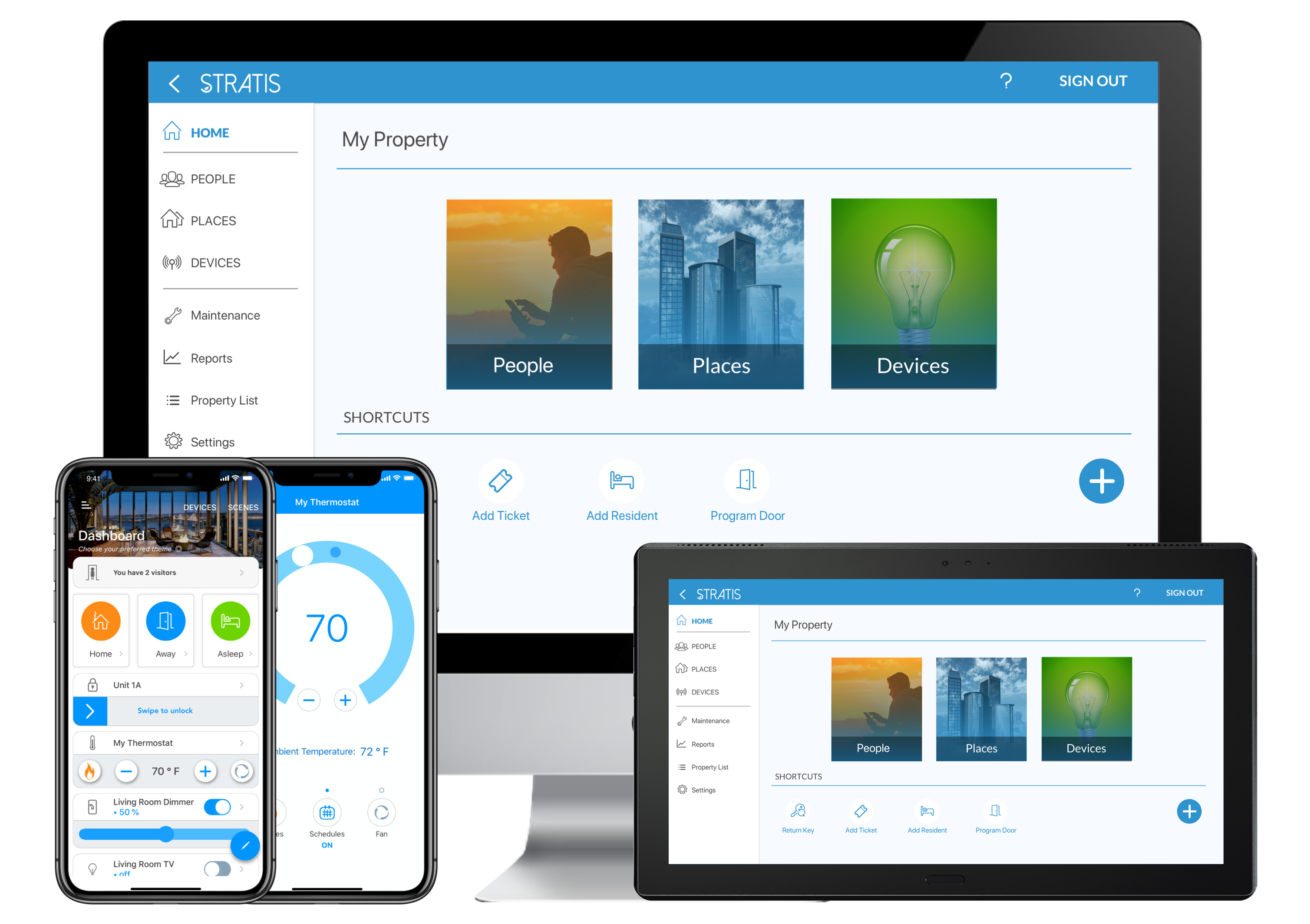RealPage, a publicly traded full-service property management technology firm with over 12,200 clients worldwide, today announced that it has acquired Stratis IoT, a startup that provides IoT services to the real estate industry, with a focus on access and energy management tools.
“RealPage aims to become a leading provider in the burgeoning rental property automation market, and thereby create significant opportunity for operators to increase rents, improve sustainability, add operational efficiencies, reduce operating costs and enhance the customer experience for the company’s approximately 19 million units throughout the United States,” said RealPage CEO Steve Winn. “The smart building technology also provides a launching pad for expanded international operations, thanks to Stratis’ existing international presence.”
Stratis is currently installed in about 380,000 homes in the U.S., Japan, UK and several countries in Europe and Latin America. Both Stratis and RealPage target a wide range of the real estate industry, ranging from multifamily units to student housing, vacation homes and commercial real estate.
Traditionally, the real estate market wasn’t always the first to adopt modern technologies. That’s quickly changing now, though, in part because of the promise of IoT, which isn’t just a boon to renters looking for modern solutions in their apartments but also represents the possibility of significant cost savings for the industry. RealPage argues that smart technology can generate a revenue lift of $55 per unit, for example, and that’s the kind of saving (and higher revenues) that will push even legacy B2B platforms to modernize.
One area where Stratis stands out is its ability to integrate with a wide variety of third-party solutions.
“Holistic building-wide access and utility management and control are integral to building optimization and the resident experience, which have become increasingly intertwined,” said Stratis IoT CEO Felicite Moorman. “RealPage and Stratis IoT combine two industry-leading, best-in-class platforms to create a powerhouse of control and single-app resident experience for multifamily, student housing, and beyond.”
The two companies did not disclose the price of the acquisition. It’s worth noting that RealPage isn’t a stranger to making acquisitions to bring its technology up to speed. A year ago, the company acquired Hipercept, for example, a firm that provided data services and data analytics to the institutional real estate market. Then, in December, it also acquired Buildium, a SaaS property management solution with over 2 million units under management. In 2019, the company said planned to spend just over $100 million on acquisitions.
from TechCrunch https://ift.tt/2YNNDwo
via IFTTT

Comments
Post a Comment